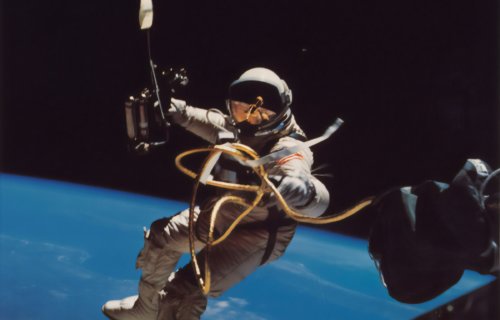GOTHENBURG, Sweden — Space travel may not be as safe for the human body as science fiction makes it out to be. Previous studies have revealed that long-term spaceflight can have negative consequences on an astronaut’s health. The decreased gravitational pull can cause loss of muscle, bones mass, back pain, and even vision issues when space travelers return to Earth. Now, a recent study finds remaining in space for long periods of time may also lead to brain damage.
Researchers from the Institute of Neuroscience and Physiology at Sahlgrenska Academy — part of the University of Gothenburg — assessed five astronauts before and after their stay on the International Space Station (ISS). Each astronaut gave a blood sample nearly three weeks before leaving for the ISS, and again after their five and a half month stay in Earth orbit. The scientists gathered blood samples one day after returning, one week after returning, and again three weeks after their return.
Study authors tested the blood samples for specific proteins that increase when the brain experiences trauma. Five of those proteins were present in each sample, including an amyloid-beta protein (Aβ40), glial fibrillary acidic protein (GFAP), and neurofilament light (NFL), which were in the highest concentrations. A second amyloid beta protein and the protein called total tau (T-tau) were also among the five brain injury biomarkers.
Concerningly, studies show that accumulations of amyloid-beta and tau proteins both have a connection to the onset of Alzheimer’s disease.
‘Concrete proof’ of space-related brain damage
“This is the first time that concrete proof of brain-cell damage has been documented in blood tests following space flights. This must be explored further and prevented if space travel is to become more common in the future,” says study senior co-author and professor of neuroscience Henrik Zetterberg in a university release.
“To get there, we must help one another to find out why the damage arises. Is it being weightless, changes in brain fluid, or stressors associated with launch and landing, or is it caused by something else? Here, loads of exciting experimental studies on humans can be done on Earth.”
Previous studies using magnetic resonance imaging (MRI) also indicate brain damage due to long-term trips in space. Clinical assessments of the astronauts’ neural activity demonstrate that their responsibilities in space have a direct impact on their brains. In this research, however, the team was unable to analyze these relationships in depth.
Co-authors Nicholas Ashton and Professor Kaj Blennow are already considering additional investigations with the collaboration of national and international space research agencies, including NASA.
“If we can sort out what causes the damage, the biomarkers we’ve developed may help us find out how best to remedy the problem,” Zetterberg concludes.
This findings appear in the journal JAMA Neurology.
